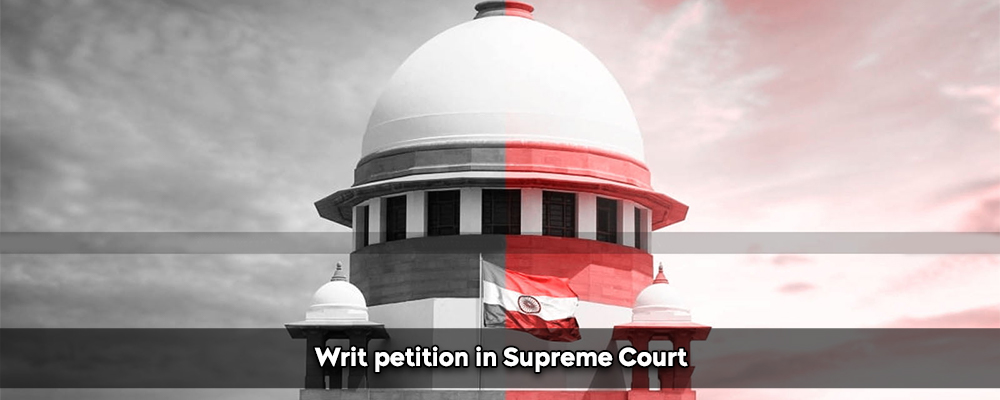Basically, a writ is an official written order that is issued by any executive or judicial body that is authorized to do so. This body is often judicial in modern times. Thus, a writ can be thought of as an official written order that is issued by a court that has the jurisdiction to do so. In essence, all writs include orders, warrants, directives, summonses, and more. An application asking the appropriate court to grant a particular writ is known as a writ petition.
Part III of the Indian Constitution contains fundamental rights, such as the rights to equality, life, and liberty, among others. It is insufficient to provide for fundamental rights merely. Additionally, these Fundamental Rights must be upheld and safeguarded. Articles 32 and 226 of the Indian Constitution grant anybody whose fundamental right has been violated the right to petition the Supreme Court or a High Court, respectively, to safeguard their rights. The two articles also grant the nation’s highest courts the authority to issue writs to uphold fundamental rights.
Need A Legal Advice
The internet is not a lawyer and neither are you. Talk to a real lawyer about your legal issue

Types of writs
Five types of writs are particularly mentioned in Articles 32 and 226. These writs have various consequences and are issued under various conditions. They are as follows:
Habeas Corpus:
In literal terms, habeas corpus means “to have a body of.” A person who has been wrongfully arrested or imprisoned may be released using this writ. The Court orders that the person in such detention be brought before it so that it might review the validity of his imprisonment by this writ. The person must be released right away if the court determines that the detention was illegal. Unlawful detention situations include:
- The established protocol needed to be followed when carrying out the detention. For example, within twenty-four hours following his arrest, the subject was not brought before a magistrate.
- Despite not breaking any laws, the person was taken into custody.
- A law that violates the constitution was used to make the arrest.
Mandamus
By “mandamus,” we imply “we command.” A public authority that has neglected or failed to carry out its legal obligations is ordered by the court to do so. The Court may issue it against the government, a public corporation, a public official, a tribunal, or an inferior court. It cannot be used against private parties, state governors, federal presidents, or active Chief Justices. Additionally, it cannot be provided in the following situations:
- The aforementioned obligation is optional rather than required.
- To carry out a non-statutory duty.
- Fulfilling the obligation entails using exclusively private rights.
- Whenever such guidance entails breaking any legal regulations.
- When the law offers another possible remedy.
Quo Warranto
Quo Warranto is Latin for “by what warrant.” The Court requests that the holder of a public office demonstrate the authority vested in him using this writ. The person may be removed from office if it is shown that they are not qualified to occupy that position. Its goal is to stop someone from usurping any public office by stopping them from holding an office to which they are not legally qualified. Regarding a private office, it cannot be issued.
Certiorari
Certiorari is the Latin for “certify.” The writ of certiorari is a remedy. Through the writ of certiorari, the court can transfer a matter to itself or overturn an order made by a lower court or tribunal if it believes that the court or tribunal violated the law or passed an order outside its authority.
Prohibition
When a court wants to stop subordinate courts, tribunals, or other quasi-judicial authorities from acting outside of their jurisdiction, they might issue a writ of prohibition. It is different from mandamus, which commands activity, in that it is issued to direct inactivity. It is issued when an inferior court or tribunal acts outside of its authority, in breach of natural justice principles, or violation of an individual’s fundamental rights. It may also be granted in situations where a lower court or tribunal operates under a statute that exceeds its authority.
Lead India provides a variety of legal services, such as free legal advice and internet tools. This place allows you to ask legal questions and talk to a lawyer.





 Talk to a Lawyer
Talk to a Lawyer